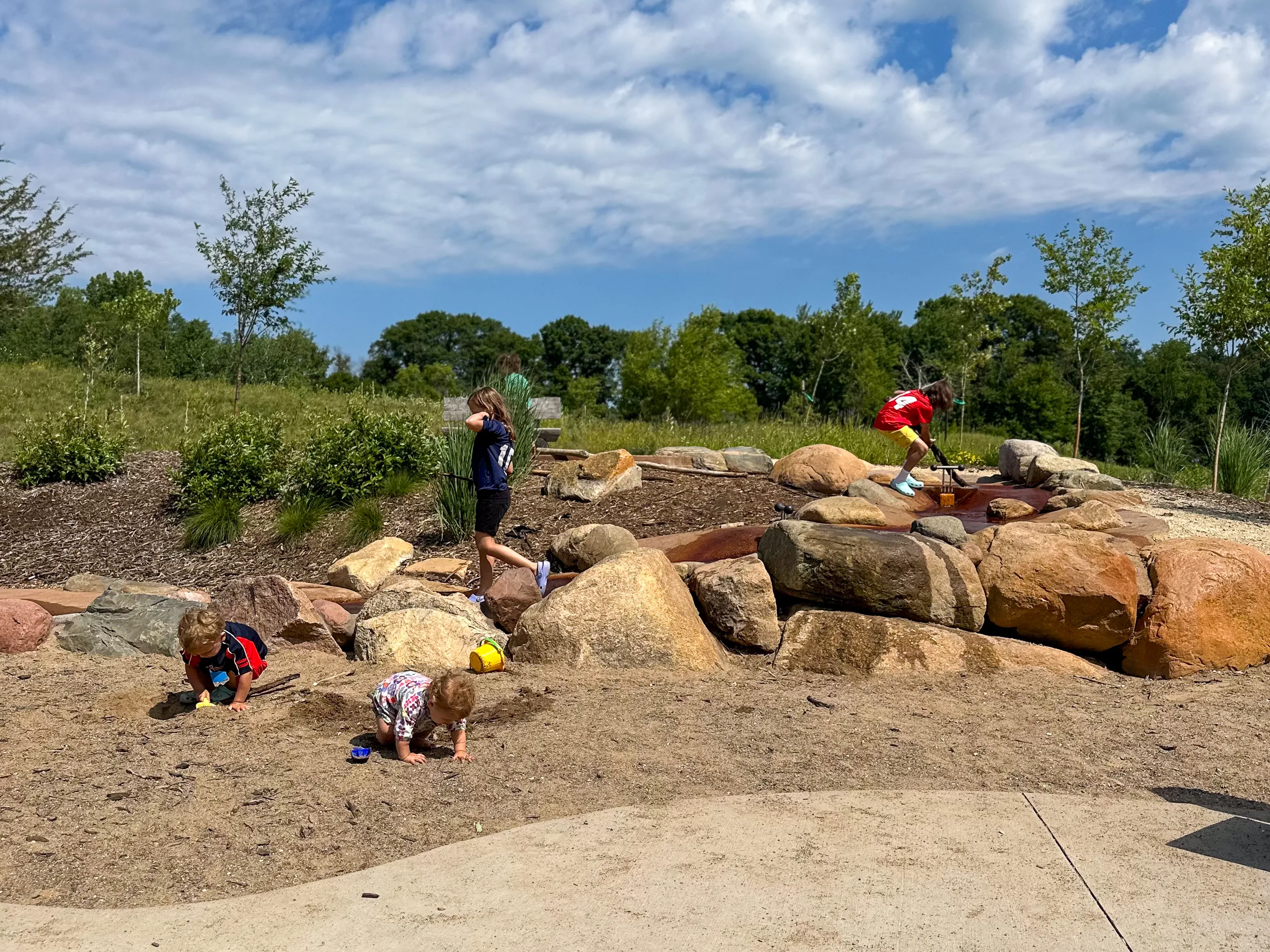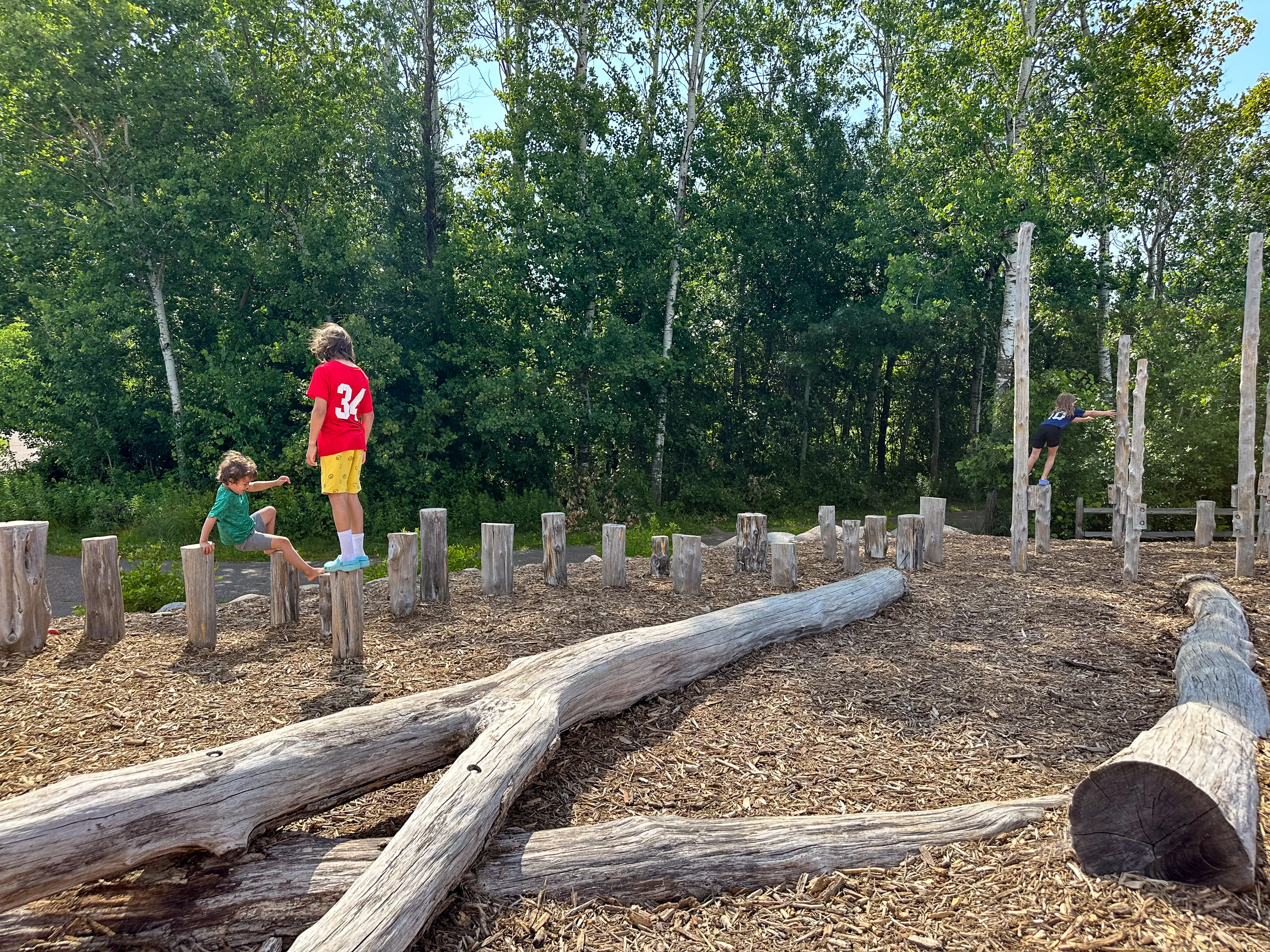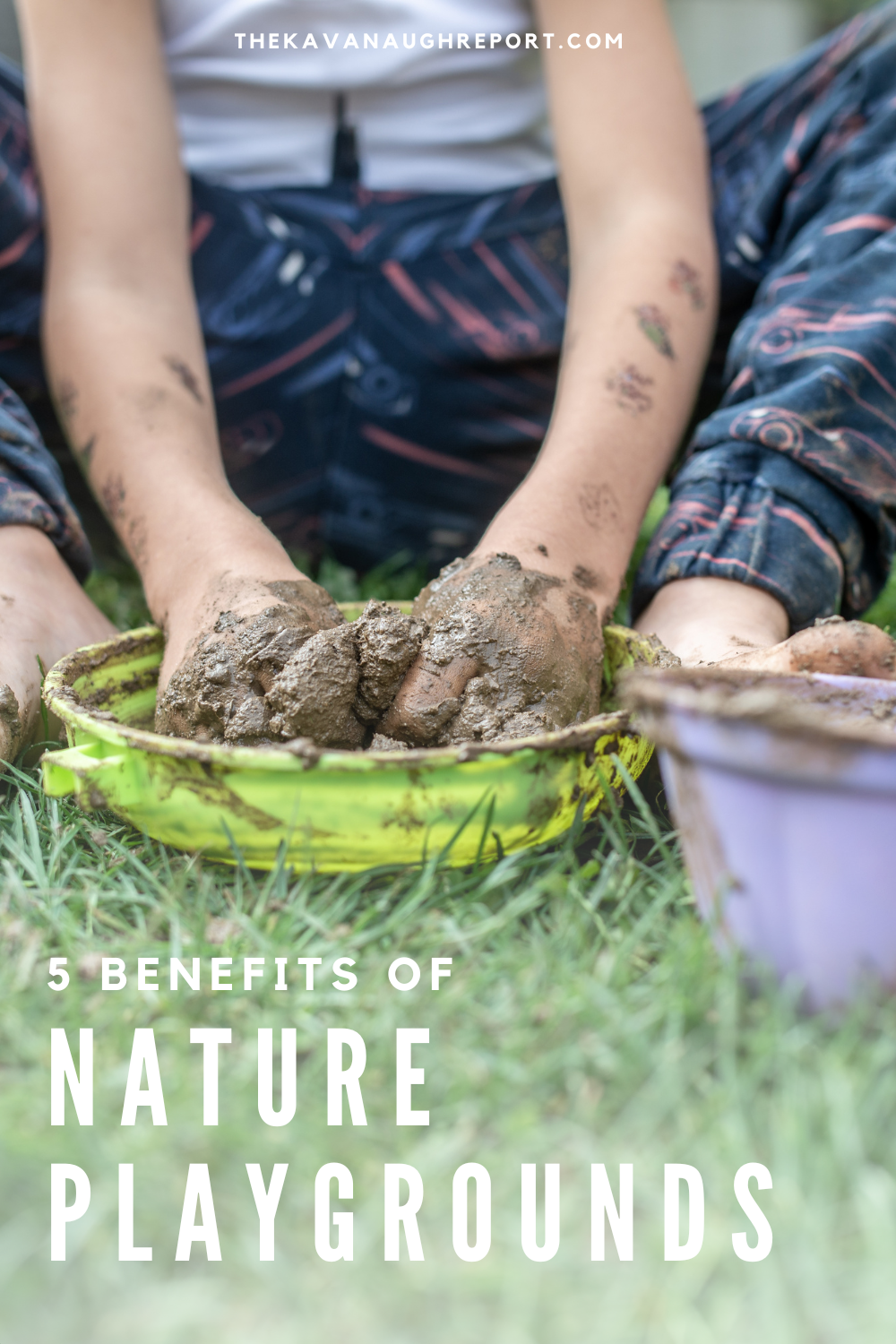We live in a world where there are just so many amazing play opportunities for children. There are museums, art studios, classes, and playgrounds. So many of these spaces provide unique benefits to children when it comes to play. But, I want to focus on one particular type of play space - nature playgrounds.
Nature playgrounds are newer and less common. They combine elements of the natural world with play features that appeal to kids. They commonly include water features, sand/mulch, logs, native plants and rocks.
Nature Playscape Benefits for Kids and Families
I see so many benefits to nature playgrounds for my Montessori kids. It's not that other types of play spaces don't offer these benefits or don't have benefits of their own, but the unique way these spaces combine nature and play really enhance the effects of the play. Not to mention they cultivate a love of nature in children that has the potential to really create lasting relationships with the natural world.
Here are five benefits that I see in nature playgrounds.
Opportunities for Collaborative and Cooperative Play
Unlike traditional playgrounds which tend to promote individual play (climbing, sliding, and swinging) or competitive games (monster tag, chase, etc.) nature playgrounds tend to inspire cooperation. Children need to work together to build forts, move sticks and rocks, or control water. The resources are also more limited, so naturally children who may not even know each other are sharing space, resources, and playing together.
This isn't always the case, but I have seen far more cooperation and large groups of kids working together at nature based playgrounds than traditional ones.
Rich Sensory Experiences and Maximum Effort Opportunities
Natural playgrounds have so many different sensory experiences - wet, cold, heavy, light, hard and soft. Each play experience can be a unique combination of sensory play. Each child gets the opportunity to seek out the kinds of sensory experiences they need to meet their individual needs. Traditional playgrounds tend to be either metal or plastic and have very little options when it comes to exploration with a variety of senses. As Montessori parents, and according to current brain science, we know that children learn best when their senses are engaged. These parks make that easy!
Appeals to a Large Range of Ages
There are very few things that every single one of my children can engage in at one time. Nature playgrounds are the exception. From older kids to babies, there is something for everyone. Testing limits and risky play for older children, and something as simple as gathering pinecones for a young toddler. I feel like we are always struggling at traditional playgrounds to find one that will meet everyone's needs - usually they are either designed for smaller kids or older ones. Even if they include play sets for both, they don't inspire each group to play together.
Increased Opportunities for Learning
There are so many opportunities for learning that can happen at a nature playground. Recently we were at one and Gus and Nora were trying to build a lake in the sand next to the water feature but it kept sinking into the ground quickly. So they suddenly got the idea to line the hole with different materials to keep it from sinking in. Over then next half hour they tried all sorts of things, finally settling on leaves as they bottom. It was like watching the scientific method at work. It's just something that would not really be an option at most traditional play spaces.
All The Pretend Play Possibilities
Now, my kids engage in plenty of pretend play at traditional playgrounds, but it tends to be either "house" or tag related. There just usually aren't a ton of options for rich imaginative play in a play space really focused on gross motor development. But nature playgrounds are different, the opportunities for language, creativity, deep imaginative and pretend scenarios exist simply because the environment often inspires them. Plus, sticks, little cozy corners of plants, rocks and hills all just mean so many more props and story telling opportunities.
Now, I don't want this post to seem like I'm anti-traditional playground, because that is definitely not the case. I love all kinds of play spaces for children. And, I don't want this to make it seem like nature playgrounds don't have issues too. I think many struggle to be designed in a way that is inclusive of disabled children, they can also feel a little exclusive and busy since they aren't widely available.
I wish the world had more of these incredible parks. There are so many benefits to nature playgrounds for our children and we need more options moving forward!





